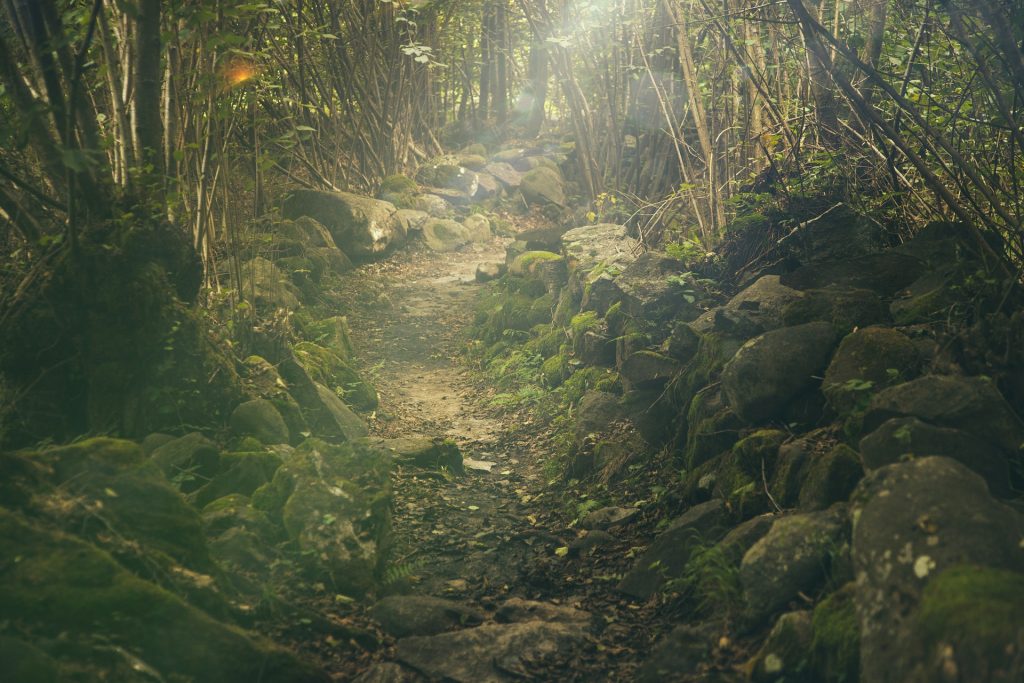
So, What is Wicca?
Wiccan Overview
Wicca is an earth based, modern style spiritual religion, based on and reviving the ancient pre-Christian Pagan religions of Europe. Wiccan’s believe in a divine force or power as the source of all. It is both immanent and transcendent while encompassing the whole universe. Therefore the world and all aspects within the world, “nature” and “life itself” in particular, are considered sacred.
Wiccan’s use ceremonies, rituals and shamanic practices to attune themselves to the natural rhythms of nature, the world, and the universe in their efforts to connect with this divine force.
To communicate with the force, Wiccan’s believe it to be manifest in the form of a Goddess and God, with both genders being equal, connected and essential. By manifesting the power in two deities (Goddess and God), the natural balance of opposites, cause and effect are retained, e.g. Summer/winter, light/ dark, life and death etc. Each opposite is essential to maintaining the balance and rhythm of life on Earth.
During ritual ceremonies and while working with magick, Wiccan’s call on many other deities. All other deities (the names of which are endless) are in essence merely differently named aspects of the same Goddess and God. Each having extra emotional and life powers. These are often ancient deities, based around the style of Wicca you choose to practice. Some choose to use Egyptian influence, others Celtic, and often take influence from many other ancients deities.
Wiccan Gods and Goddesses
Wicca has no high authority, no single leader, no prophet and no bible to dictate its laws and beliefs. Every witch is as important as another and all share equal status. Most Wiccan’s are solitary practitioners sometimes called “Hedge Witches”, but there are also many “Covens”.
Covens
Covens include groups of up to 13 people, which is equal to the 13 phases of the moon during the year, modern covens can include more witches and they often perform large rituals to celebrate the seasons. Covens are normally presided over by a Priest or Priestess who has had years of practice in magick and ritual techniques. The Priest or Priestess is respected as an Elder and teacher of the craft.
Rules
All Wiccan’s adhere to one overriding ethical concept as outlined in the “Wiccan Rede“:
“Though it harm none, Do what thy wilt”.
This is not a license to do whatever you want, more that it allows you the freedom of thought and actions to ascertain the truth, to communicate with and experience the divine and to determine how best to live their lives, if by doing so you cause no harm.
This can also be taken as a cautionary reference to the one fundamental law governing magick and its use.
This states that whatever you do – be it for good or for evil – it will be returned to you, but magnified three times over. Much like the common thoughts on Karma. Therefore you accept responsibility for your own actions and need to be particularly careful how you use magick, because if you hurt someone or cause distress the spell can be returned three times better or 3 times worse.
Sabbats
Most Wiccan’s celebrate 8 major rituals each year called “Sabbats”
These are broken up further into 4 major and 4 minor Sabbats.
The major Sabbats cover:
- Imbolc (February 2nd)
- Beltane (April 30th)
- Lughnasadh (August 1st)
- Samhain (October 31st)
Minor Sabbats are:
- Ostara (Spring Equinox, March 21st)
- Litha (Summer Solstice, June 21st)
- Mabon (Autumn Equinox, September 21st)
- Yule (Winter Solstice, December 21st).
You have probably noticed that many of the Sabbats fall on dates that the Christian faith has chosen to be their holy days. Ostara is at the same time as Easter, and Yule is celebrated at the same time as Christmas. There is no coincidence here as the Christian faith was developed long after the Pagan.
The Sabbats are solar rituals marking the points of the sun’s yearly cycle and makeup half of the Wiccan ritual year. The other half is made up with “Esbats”, the Full Moon celebrations. There are 13 full moons each year symbolizing the goddess, wisdom and the inner self of the individual.
Who can be Wiccan?
Wiccan’s are ordinary everyday people and come from all walks of life, from all areas of society and from all over the world. Most are individuals seeking a personalized practical religion that can be adapted to suit their own needs and criteria. Wicca is a wonderfully diverse religion that meets those needs.
There are many different paths contained within Wicca, each with its own brand of ritual and magick. But perhaps the single most common theme among all these traditions, is an overriding reverence for life, nature, and the environment, as seen through the Goddess and God.
Back to Laws of Wicca
